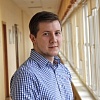After a week of confusion and failed attempts to bring warring sides to the table, Syria peace talks that had begun in Geneva on January 25 2016 were suspended till late February on Thursday. This may be a much-needed break that may help prevent the wider negotiating process from being derailed. In other words the battle is lost but the war is not over.
After a week of confusion and failed attempts to bring warring sides to the table, Syria peace talks that had begun in Geneva on January 25 2016 were suspended till late February on Thursday. This may be a much-needed break that may help prevent the wider negotiating process from being derailed. In other words the battle is lost but the war is not over.
While the Syrian government arrived in Geneva in time for talks and held several meetings with Steffan De Mistura, the Higher Negotiating Committee (HNC), a Saudi-backed opposition bloc, held its first informal meeting with UN negotiators on February 1. Notably, the opposition demanded that airstrikes be halted and political prisoners be released for the negotiations to go further. These demands, however, contradicted what Russia and the United States promised on January 15 when Secretary of State Kerry and Foreign Minister Lavrov announced talks in Geneva with no preconditions.
It appears that the Higher Negotiating Committee was not going to appear in Geneva at all but its main international supporters convinced the representatives to come in an attempt to save face. The HNC insisted that it would ignore the talks if there were a third group, highlighting that there is no unity in the ranks of the Syrian opposition itself. The opposition bloc protested when Russia tried to invite the so-called Assad-tolerated opposition to Geneva which would significantly dilute HNC’s power. 29 opposition figures who do not belong to the Higher Negotiating Committee ended up being invited to Geneva, albeit as advisors and not delegates.
Syrian Kurds were the only political and military force not represented at Geneva talks. Under pressure from Turkey Steffan De Mistura decided not to send an invitation to Syria’s PYD that has been a key ally in Washington’s fight against ISIS. Both Russia and the US initially supported PYD’s presence at talks but the White House eventually changed its stance fearing the alienation of Turkey and the HNC.
The talks were clearly off to a bad start and the fact that they ended so abruptly did not come as a surprise to observers. Commenting on the suspension of talks Stefan De Mistura said that “after the first week of preparatory talks there is more work to be done, not only by us [the UN] but by the stakeholder.” Many have concluded that this round of Syria negotiations had already failed just like Geneva-2 conference in 2012. A temporary pause may be interpreted as a failure but it probably makes a lot of sense and could be conducive to the overall negotiating process.
From the beginning it was clear that not only Syrian parties but their international backers as well were not on the same page about the goals of peace talks. In the week up to February 3 a few notable developments took place in and around Syria that may potentially alter the balance of power. The pause may help everyone touch base with their partners and assess the new status quo.
One of the developments that seemed surprising to many observers was the statement by Russia’s Foreign Minister Lavrov who during his recent visit to Oman said that Russia accepts two members of Jaish Al Islam and Ahrar Al Sham in their personal capacity as delegates in Geneva. The two individuals are to negotiate as part of the HNC. In his statement Lavrov added that Moscow does not, however, recognize Jaish Al Islam and Ahrar Al Islam who have close ties with Jabhat Al Nusra, a terrorist organization for Russia, as negotiating partners.
This position pronounced by Foreign Minister Lavrov is a major departure from what Russia previously said. The move was apparently coordinated with Damascus and is a negotiated concession that Moscow is making to the opposition supporters expecting reciprocity from them. The likely tradeoff is going to be to allow PYD representatives to come to the next round of talks on February 25.
In other major developments, the Syrian Army backed by Hezbollah as well as IRGC forces and supported by Russian airstrikes managed to end a three-year siege of Nubul and Zahraa, two Shia towns north of Aleppo on February 3. This means that the Syrian forces have cut rebels’ lifeline to Turkey, their northern supply route. The looming success of the Aleppo operation largely explains why the Russia-Turkey crisis intensified in late January. What cutting Aleppo off from Turkey essentially means is that without a constant supply of reinforcement from the north the rebel movement in the area is likely to choke very soon.
The temporary pause in the Geneva talks gives the Syrian Army and its backer three weeks to further weaken rebels in Aleppo, which is now going to be easier to achieve. Syria and Russia have essentially bought themselves time to try and make rebels more desperate, hence pressure them into being more cooperative once the talks resume. At least now the Aleppo blockade is a lever that can be used against the HNC in Geneva.
Opposing sides keep blaming each other for the delay in talks: Washington blames Russia for airstrikes that allegedly derail the political process; Russia says the HNC was intentionally recalled by Riyadh. Putting the blame game aside the talks’ suspension is in everyone’s interests. It was a necessary pause that may prevent the Geneva format of talks, the last hope for peace in Syria, from a complete failure.
Contradictions that were identified as a result of the talks in Geneva, including the prospects of PYD’s participation and a possible humanitarian ceasefire, will need to be resolved during the “Vienna format” meeting in Munich on February 11. The talks between major powers and backers of opposing sides in the Syrian conflict will show whether the Assad government and the HNC at all need to return to Geneva for another round of negotiations.






